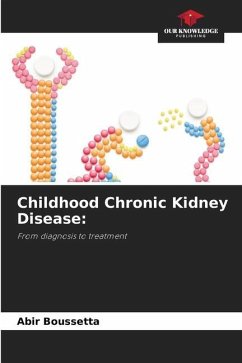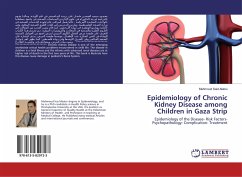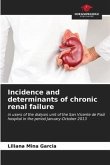Chronic kidney disease (CKD) is defined by the presence, for more than 3 months, of markers of renal impairment, which may be morphological, histological or urinary abnormalities, or an abnormal GFR. CKD is classified into stages of increasing severity according to the level of glomerular filtration rate (GFR) and proteinuria.CKD has many etiologies, but is dominated by malformative uropathies. The main risk of CKD is progression to end-stage renal disease (ESRD), whatever the underlying etiology. As in the adult population, CKD can remain silent for a long time; however, early detection enables appropriate management of complications as soon as they appear, with the aim of slowing progression to ESRD. The role of the pediatric nephrologist is to confirm CKD, to clarify the etiological diagnosis and any complications, and then to monitor the child according to the stage of CKD. Psychological support for the child, parents and siblings is mandatory, as is social assistance.
Bitte wählen Sie Ihr Anliegen aus.
Rechnungen
Retourenschein anfordern
Bestellstatus
Storno








